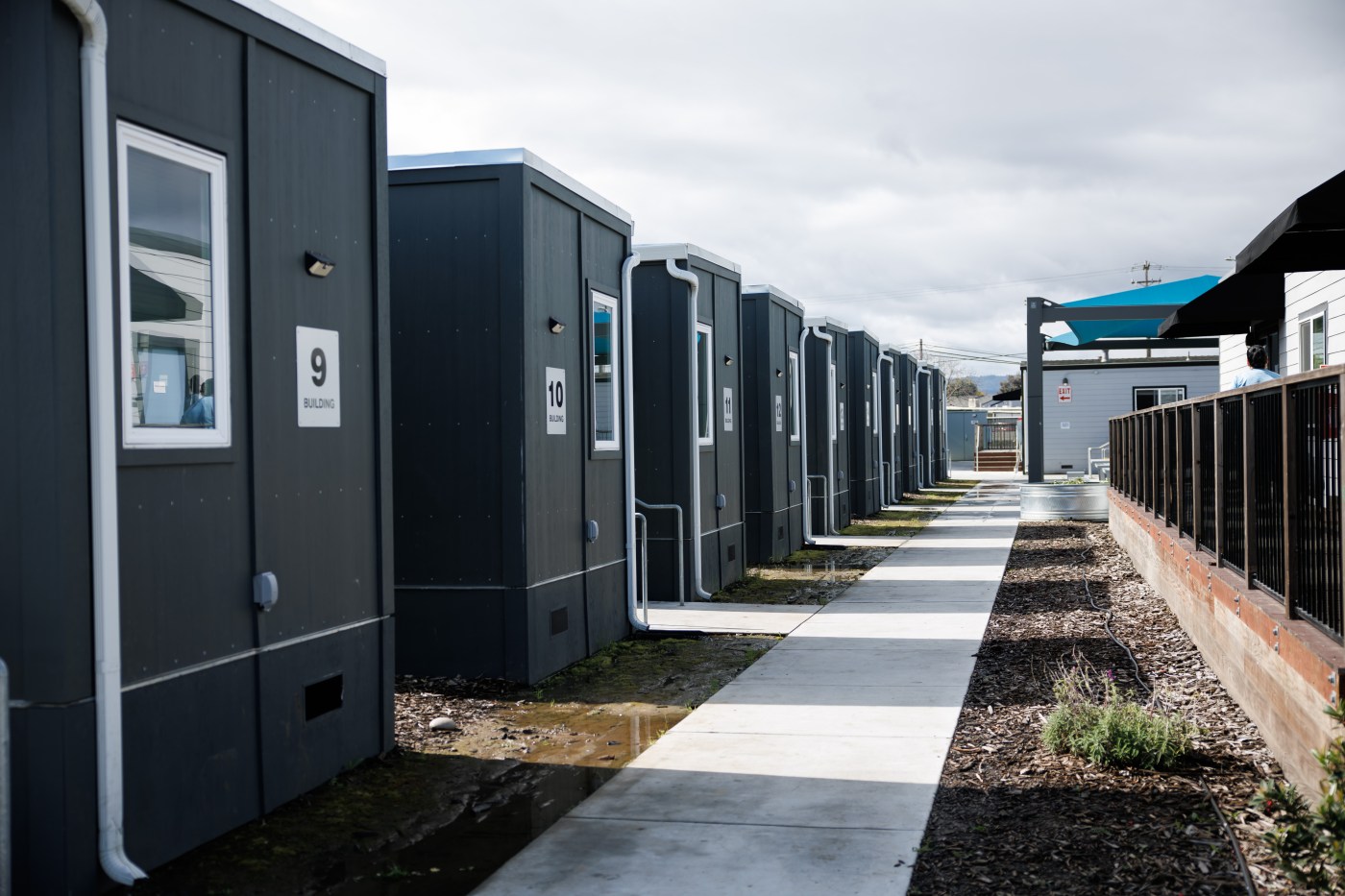About 181,000 Californians are uncertain if they will have a place to sleep tonight, and two-thirds of them are unsheltered, meaning they are especially exposed to extreme weather, infectious diseases and physical abuse. Nationally, only one-fifth of homeless individuals are unsheltered, and in New York City, only one in twenty. The unsheltered homelessness crisis is a disproportionately and shameful California nightmare.
Permanent housing is the ultimate solution to ending homelessness, but it takes a long time to build and is costly, with average per-unit expenses exceeding $600,000 and exceeding $1.1 million in some major cities. While we must keep constructing and investing in sufficient permanent housing long-term, we must still address the short-term crisis with uniquely Californian solutions.
Interim housing is this missing rung on the ladder toward permanent housing. It lifts unsheltered homeless individuals off the streets and into temporary residences to help them transition into stable housing. These residences could include tiny homes, hotel rooms or other types of housing. For example, Santa Clara County is working to expand its interim housing efforts that include units ranging from 40 to 150 square feet, which are lock and key and service-enriched with meals, health care and employment assistance.
Thankfully, California can enshrine interim housing as a viable and cost-effective solution to our unsheltered homelessness crisis. The Interim Housing Act of 2024 helps cities approve and construct interim housing throughout California by freeing up state homelessness dollars for interim housing. It will give communities the option to expand and expedite approvals for interim housing and other forms of homeless shelters to get people and families housed faster to save lives.
The interim housing model is a proven local strategy that has repeatedly been shown to reduce unsheltered homelessness. The nonprofit and interim housing developer DignityMoves has championed the movement, serving hundreds of people and having built 415 units across the state with almost 1,000 more in the pipeline.
Its cost effectiveness makes interim housing particularly appealing. Each unit costs as little as $50,000 to build, reducing the per-person costs of treating homelessness. Additionally, every time someone achieves independence and moves out of interim housing, a new space frees up to help another person experiencing homelessness. Seattle’s comparable project saw 65% of users move to permanent housing within six months.
Related Articles
Sunnyvale homeless shelter at center of discrimination allegations gets new operator
California Supreme Court sides with UC Berkeley on People’s Park development
California home-price gains may ‘cool’ in next 12 months
Walnut Creek approves ADU plan for faith-based properties
Contra Costa County’s homeless population jumps 19% despite hundreds of new homeless housing beds
Interim housing developments in San José have housed roughly 1,500 homeless individuals, and approximately 70% are still off the streets. In addition to decreases in assault, graffiti, arson and other crimes in areas around San José’s interim housing developments, the city reported a roughly 11% decrease in unsheltered homelessness in 2023, while the rest of California experienced a 10% increase — a 21% swing!
One of these San José interim housing developments is 2708 Evans Lane, where 49 homeless families are sheltered in recycled shipping containers transformed into 36 livable housing units. The city built the site in under a year, spending only $66,000 per unit. This prime example shows how easily cities can implement interim housing and positively impact homeless individuals and local communities.
Moving the unsheltered into tiny homes, hotel rooms and other types of housing is a proven, cost-effective strategy. California has tried countless approaches and invested billions of dollars to curb homelessness, yet the crisis persists. Adopting the Interim Housing Act law will decrease unsheltered homelessness while conserving taxpayer dollars and will help homeless individuals climb the ladder to permanent housing one interim unit at a time.
California Sen. Josh Becker represents District 13. Ethan Deitcher is a junior at The Nueva School in San Mateo and an intern for Becker.












